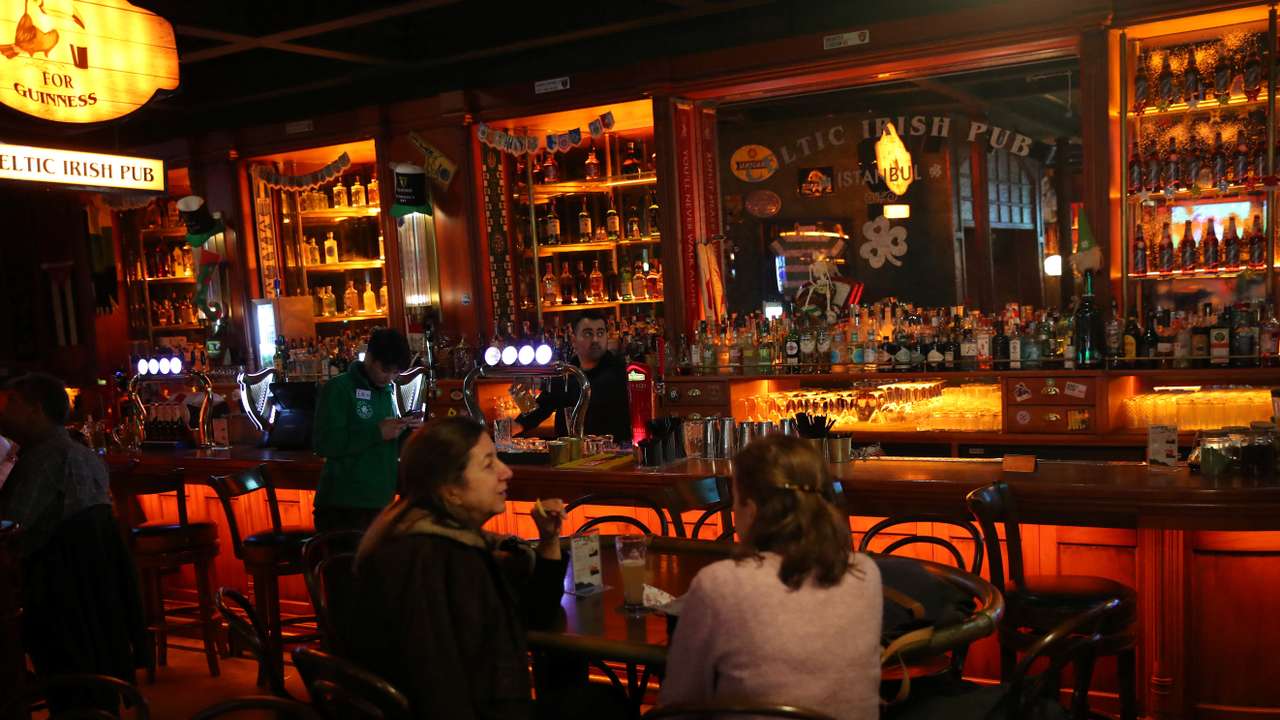Turkey's planned alcohol deposit 'another nail in the coffin', small producers say

Turkey's planned alcohol deposit 'another nail in the coffin', small producers say
By Can Sezer
It took 15 years for Mustafa Camlica to earn international recognition for his wines, but he and many other small and medium sized Turkish producers fear a planned new financial burden could destroy livelihoods in a sector already facing daunting hurdles.
Under the rule of President Tayyip Erdogan's Islamist-rooted AK Party for 21 years, alcoholic drinks makers in Turkey have faced an increasingly onerous tax burden and other restrictions, leaving the multi-billion dollar market stagnant.
Now small winemakers and breweries fear a planned financial collateral requirement will make it even harder for them to survive in the tough local market, and frustrating efforts to develop their unfulfilled export potential.
Producers already face obstacles such as a ban on online sales since 2011, a prohibition on marketing and restrictions on retail sales. Alcohol cannot be sold in close vicinity to public buildings or schools,
"After the ban on online sales, we can say this is another nail in the coffin for small producers," said Camlica, founder of Chamlija Winery in Kirklareli, northwest Turkey. Camlica recently won two awards at the AWC Vienna competition for his Cabernet Sauvignon and Merlot reds.
Turkey has made some strides towards international recognition two decades ago, but failed to capitalise on that, a local vineyard owner said.
"A few of us braved the export market, but just a few. If this draft is implemented, what will we have to show for it?," he said, requesting anonymity to avoid drawing authorities' attention.
Winemakers operate in a region with an ancient tradition of production dating back thousands of years, but in a Muslim country and under an Islamist-rooted ruling party that frowns on alcohol consumption.
While Turkey was the world's number five grape grower in 2021, with 419,000 hectares (1.04 million acres) of vineyards , according to International Organisation of Vine and Wine, only 15% of that area was dedicated to wine production.
While drinking alcohol is forbidden in Islam, it is drunk relatively freely in Turkey, though mainly in more secular, western and tourist coastal regions. Local wine consumption was 834,000 hectolitres in 2021, just below Bulgaria, with less than a tenth of Turkey's population.
COLLATERAL REQUIREMENT
Under the draft regulation that emerged last month, the agriculture ministry will require alcohol producers to provide financial collateral to cover tax or administrative fines that they may face in the future.
All alcohol producers and importers will have to deposit 5 million to 50 million lira ($1.7 million) collateral, which would be seized if a fine is left unpaid, under the regulation, the draft of which was seen by Reuters.
"Once in place, there is nothing to stop them from raising arbitrarily, perhaps doubling, collateral next year," Camlica said.
He and other producers say the collateral represents a multiple of the initial outlay for a small winery, creating a barrier for new investors, threatening expansion plans or even forcing some to quit the market.
Small producers are set to be hit hardest. Some 130 of around 180 vineyards and wineries in Turkey are small, with capacity at less than 500,000 litres.
Wine production and storage capacity in Turkey totals nearly 160 million litres, with four major producers accounting for more than a third.
Producers asked the ministry to drop the collateral at a meeting this month, but it signalled the measure would go ahead, potentially at a lower level, two people familiar with the discussion said.
"Some producers will not be able to meet collateral rules and cease production. Many will have to scale down," the Turkish Wine Producers Association said in a statement, asking the ministry to refrain from cancelling production licenses for those that cannot post collateral.
The ministry declined to comment.
INDEPENDENT BREWERIES
In a market dominated by two big names independent breweries are also at risk and some may close, according to brewmaster Cem Guney.
"The financial burden will constrict independent breweries and the nascent culture, handing the market back to large commercial breweries," he said.
The overall tax burden on the sector is already very high by international standards.
Producers are required to buy permit stamps before shipping to retailers, then an excise tax indexed to inflation is added and a sales tax is applied.
The excise tax amounts to 2.5 times the EU average for beer and 1.6 times the wine average. It provided 1.9% of Turkish tax revenues in 2022, the fourth highest level among EU countries.
This article was produced by Reuters news agency. It has not been edited by Global South World.